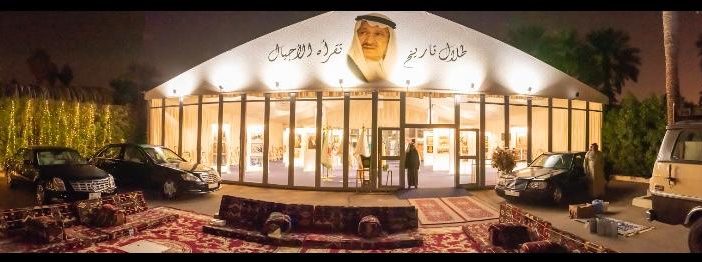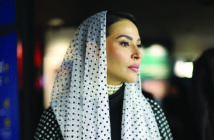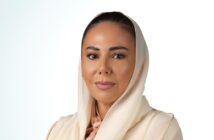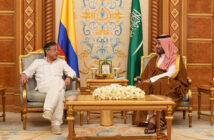An exhibition to commemorate and pay tribute to HRH Talal bin Abdulaziz Al Saud
Prince Abdulaziz bin Talal is the fifth son of the late Prince Talal bin Abdulaziz Al Saud. Similar to his father, Prince Abdulaziz is known for his innovative, visionary and progressive mindset. To commemorate the second year of his father’s death (December 22nd, 2020), Prince Abdulaziz organized an exhibition associated with Prince Talal’s legacy and his life. This I consider as a thoughtful and meaningful way of celebrating one’s life.
The exhibition is a due diligent tribute to the journey of the life Prince Talal lived. Prince Talal was born in Shubra Palace in Taif and grew up surrounded by the love and support of his family. The exhibition was presented in a traditional Saudi tent adorned with memories, history, and wonder and it was intended only for family members and close friends. It took three days to properly organize the exposition, which turned out quite opulently arranged, as a standalone museum dedicated to the life and outstanding work of the late Prince Talal.
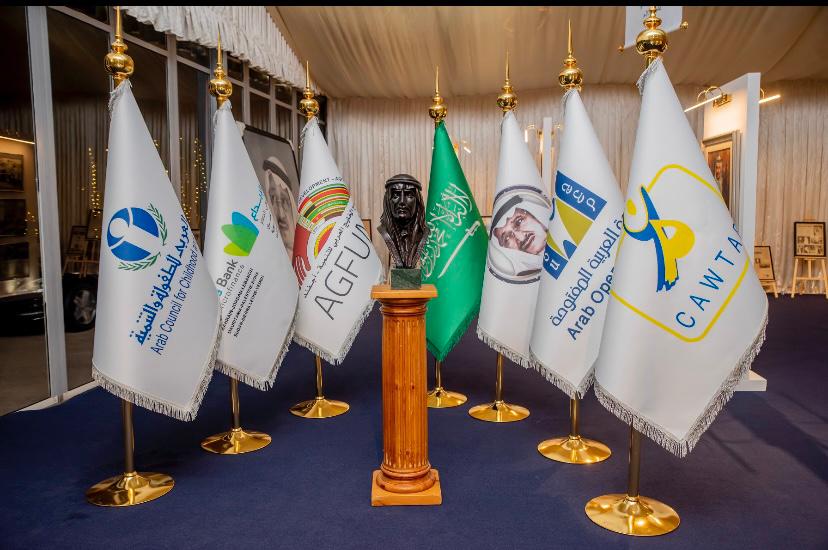
During my visit, Prince Abdulaziz bin Talal expressed genuine hope that a cultural center, museum and library named after Prince Talal will be created on the foundation that this project has laid, in the near future. The plan is for the cultural center to be dedicated to all Saudi dignitaries who have made a difference and who have a story to be told and shared. Thus, it would be a wise approach and method to recognize and commemorate the achievements of great Saudis.
The exhibition has become a showcase of Prince Talal’s life, displaying many of his personal amenities, manuscripts, letters, photos, and articles arranged in different sections. Each piece had its own story and message conveyed to the guests.
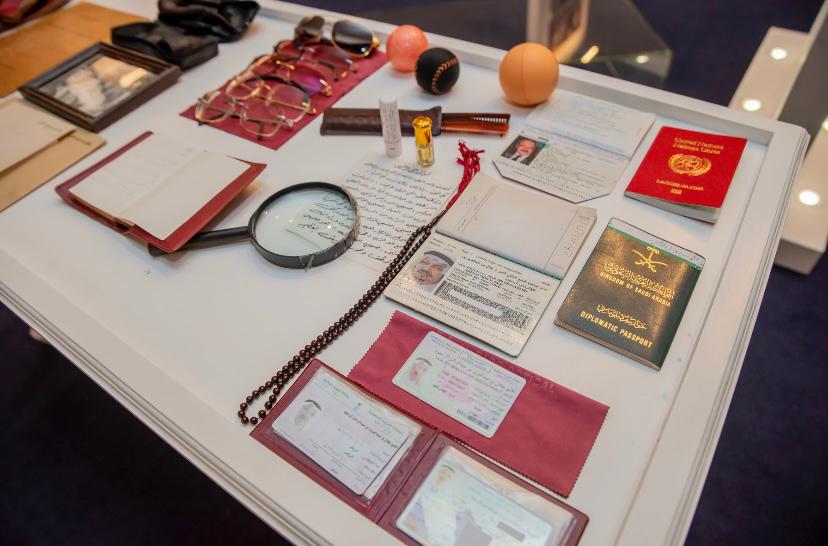
During Prince Talal’s tenure as a diplomatic leader, he has left a sizeable footprint in the fields where his work was recognized and acknowledged. In 1950s, he was appointed as the first Minister of Transportation and the first Saudi ambassador to France. During the reign of King Saud, Prince Talal was the Minister of Finance.
In 1980, Prince Talal was appointed as special envoy to UNICEF. His diplomatic passport depicts his extensive history of travels. It is noteworthy, after Prince Talal passed away on December 22nd, 2018, the United Nations (UN) extended his passport for another year in remembrance and reverence of his memory.
In 2003, Prince Talal was appointed as the UNESCO’s Special Envoy for water. His extensive research background in the field of resource management and water scarcity in deserted areas spanning 17 years, became paramount in the economic and political scene of the developing Kingdom.
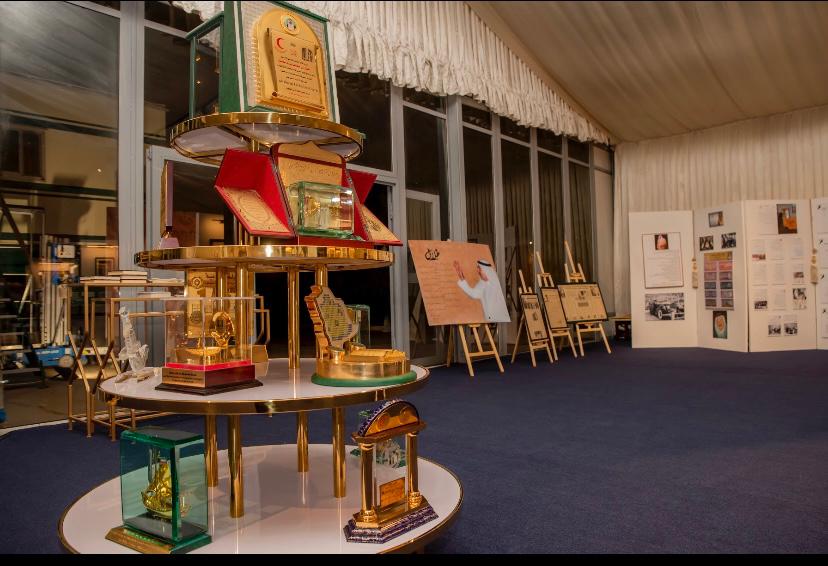
His exponential contributions to the diplomatic and scientific community of the region have brought the Prince international acclaim. He was awarded numerous medals from France, the US, Tunisia, Syria, Egypt, just to name a few. In 2000, he received the last recognition and award in his lifetime, presented to him by then the UN Secretary General, Kofi Annan. After that, Prince Talal decided to redirect any award to his organizations.
There were four fields that Prince Talal cared about passionately: children, fighting poverty, education, and women’s empowerment. Thus, he established the Arab Council for Childhood & Development, a regional NGO working with the Arab League, UNICEF, and the UN. The organization is based in Egypt because statistically, Egypt is home to the poorest children in the Arab world.

“AGFUND International Prize,” as it was called in the past, (currently, Prince Talal International Prize for Human Development) is a program that belongs to Arab Gulf Program for Development (AGFUND). The name of the prize has been changed three days following the passing of the Prince Talal. To honor his legacy, the Gulf Cooperation Council (GCC) decided to commemorate the lifetime humanitarian and philanthropic achievements of Prince Talal by renaming the award. AGFUND can be considered the lifetime project of Prince Talal.
Prince Talal dedicated many resources to the cause of education. In 1996, the Arab Open University (AOU), a distance-learning organization, was launched, the idea was brought forward by Prince Talal. In 2002, the first university was established, headquartered in Kuwait. Nowadays, AOU can be found in nine Arab countries, with 20 different campuses.
Lastly, as an avid supporter of women’s empowerment and growth, Prince Talal established Center of Arab Women for Training and Research (CAWTAR), which is based in Tunisia. Interestingly, Tunisia was the first Arab country during the last decade of the 20th century, which made the fastest strides in driving female progress.
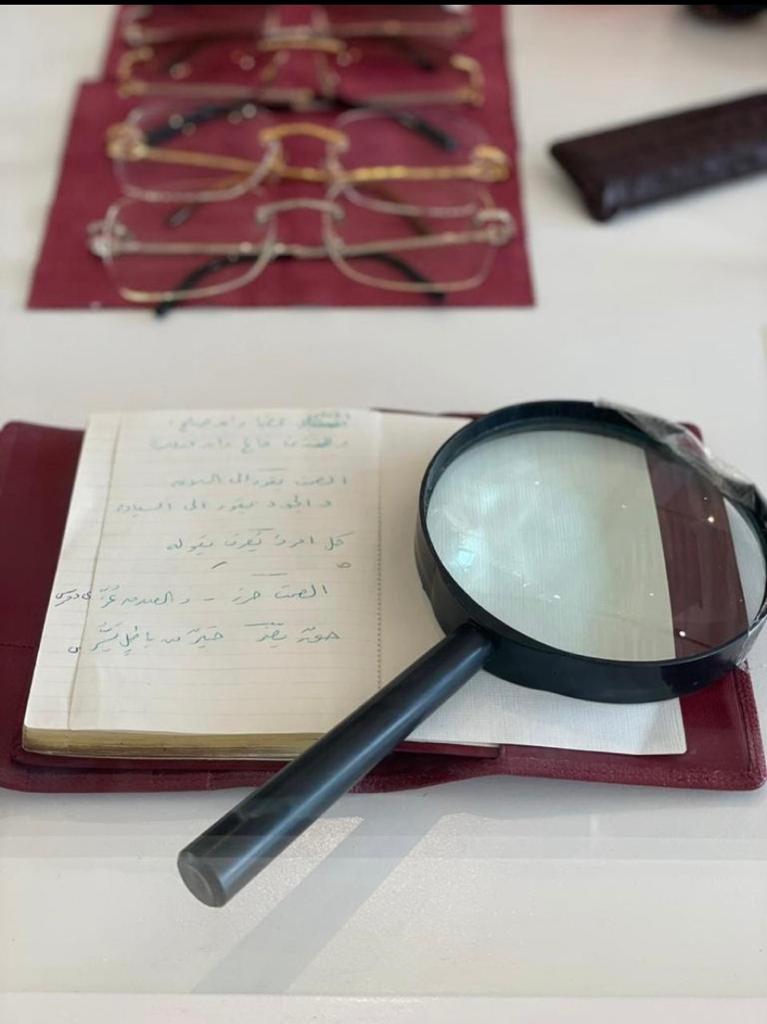
The late Prince Talal was an extraordinary, luminous, and visionary man with an innovative, inclusive, and open-minded approach to life in general. His passion for helping the people translated into an incredible compassion for the disadvantaged. Whenever he believed in something, he would strive to understand, accept, and promote it for the well-being of the society, which would result in an inevitably positive outcome for the people surrounding him.
Reflecting on the future plans for the cultural center, Prince Abdulaziz explained: “I think that it is a justified approach to pass his legacy forward. In his lifetime, my father did not like speaking of himself at all. He preferred highlighting the roles of the organizations that he worked with. It is only fitting that now his story is told, his vision is presented to the world, and credit is given where it is due.”

